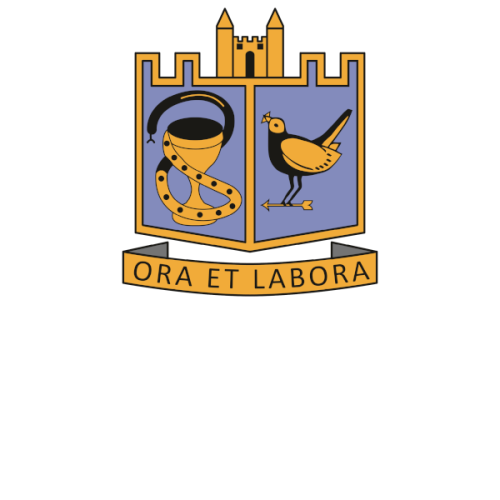Drama
Subject coordinator: Mrs Davies – c.davies@stbenedicts.essex.sch.uk
Drama at St Benedict’s Catholic College is designed to provide every student with the opportunity to develop their creative, communication and collaboration skills. These traits are highly sought after in the world of work and further education. With this in mind, every student will have the opportunity to create their own performance pieces using a range of specialist skills, working in teams / independently and critiquing their end impact on the audience to exercise the desired skillset.
For students in KS4, they will use their vital base knowledge attained on their KS3 Drama journey to equip them with everything they need to achieve a top grade at GCSE. They will be provided with an enhanced curriculum journey that leaves no stone unturned across a broad range of practitioners and approaches which will provide a foundation for further academic and vocational training.
Drama students at St Benedict’s will be equipped to take lead roles in the wider world.
During KS3, students are introduced to the basics of drama. This initial phase takes students through the basics of what practical tools practitioners use to create a performance piece. Engaging and stimulating, the students develop a ‘toolkit’ of skills to deploy. These are then used to create pieces of performance work in groups.
We then introduce students to working with a stimulus which has a focus on a particular social / economic / cultural theme. Theatre and performance are an integral way of exposing and educating people to new ideas and experiences.
Home learning at KS3
Students are encouraged to rehearse their performance pieces that are assessed in each wave of their rotation in Drama. This can be done in school at breaks or lunch or after school.
Students are sometimes asked to research or think about a specific social / economic or cultural theme. These topics are designed to challenge perspective and understanding. Discussions and debates at home can lead to new ideas and more confident contributions in the studio.
What can parents/carers do to support at home?
Parents should encourage their child to view theatre online. The benefits of watching and analysing what makes a performance impactful encourages students to learn more about theatre genres and develops their critical analysis skills.
Going to the theatre can be costly, but local community performances are often a lot cheaper and can be very professional. This is often a fun, family-friendly activity that allows students to experience the thrill of live performance.
Students at KS4 work towards the three main components of the GCSE examination. This involves devising, performance and response to text and live performance.
We will also cover the styles of key theatre practitioners such as Brecht, Artaud, Stanislavski and Frantic Assembly. This will be explored from a theoretical and a practical perspective. This creates a full and highly stimulating curriculum which enhances student outcomes and sets them up well for higher education.
Home learning at KS4
Students can be expecting to complete regular home learning in Drama in KS4. This will often start in the form of research, line learning and writing about their experiences of ‘live’ theatre.
This is all in preparation for the highly theoretical format of the GCSE qualification. Many students make the mistake of thinking that drama is a mainly practical based option, but this is not the case. Their creative and evaluative written skills will be heavily used. Organisational skills will also be put the test as the course has a clear set of activity deadlines and external examination that students need to bear in mind.
What can parents/carers do to support at home?
Students and parents should be aware that the ‘written’ element of Drama GCSE makes up 70% of the qualification. Coursework is written at home and students should be prepared to use the internet for research purposes and access their laptop / home PC to write up their notes. Basic computing packages such as word and PowerPoint are especially useful.
Watching as much ‘live’ theatre in their own time is always useful in building strength in their critical analysis skills. This can be viewed online, at local community locations or professional theatres.
Drama is also a subject whereby engaging in extracurricular programmes is an immensely powerful way of gaining confidence, perfecting techniques, and working in a more professional capacity. It also enables students to work with technical elements such as lighting, music, sound and set design.
https://www.ocr.org.uk/qualifications/gcse/drama-j316-from-2016/
https://www.bbc.co.uk/bitesize/subjects/zbckjxs
https://www.dramaonlinelibrary.com/
https://www.nationaltheatre.org.uk/national-theatre-online/
https://www.franticassembly.co.uk/
https://www.theodorerooseveltcenter.org/Learn-About-TR/TR-Encyclopedia/Culture-and-Society/Man-in-the-Arena.aspx

